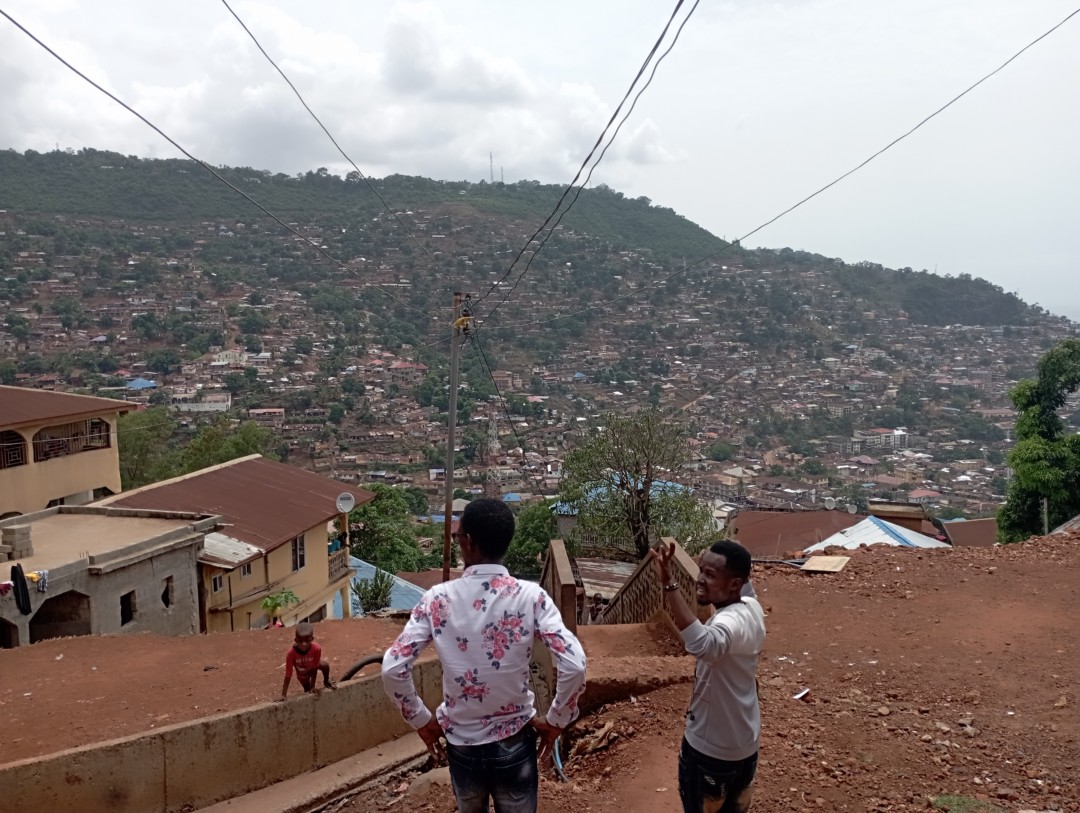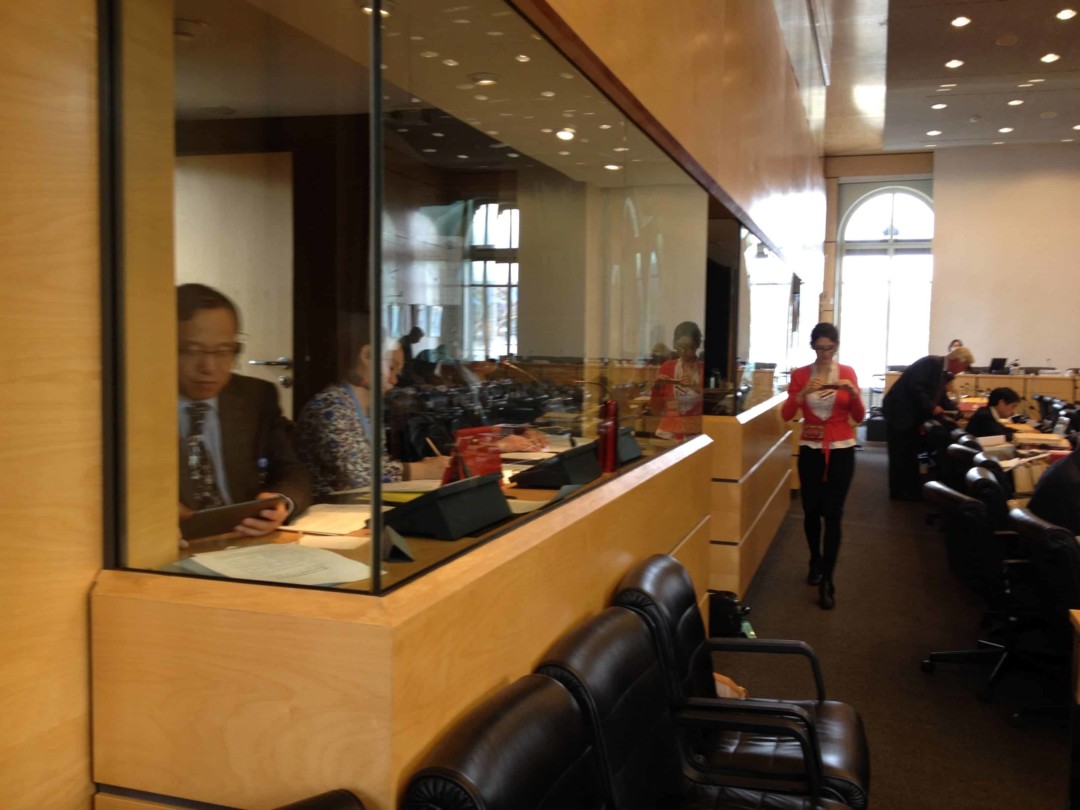When concepts such as ‘participation’ that emanated from radical movements with the objective of transforming social relations and power structures are introduced and popularised in the public discourse as well as in academia, it can be an opportunity to trigger radical changes. However, to what extent can discourses with radical roots be adopted by mainstream (neoliberalised) institutions (including academia and Non-Governmental Organisations), without these being depoliticised and their radical and transformative meanings diluted? In this fieldnote, I reflect on how the concept of ‘participation’, which claims its roots to ‘the emancipatory pedagogy of Paulo Freire’, has been co-opted to ‘reinvent’ the neoliberal development discourse (Leal, 2007: 540). I briefly trace the history of how participation became depoliticised and turned into a series of methodological tools to fit the neoliberal dogma and illustrate its deployment in discourses of development on the ground, today. The note builds on observations from fieldwork on urban climate adaptation conducted in Freetown (Sierra Leone) in 2023.
Participation on the ground
‘We do not implement any activity without the full participation of local communities’. This was the immediate response from a representative of an international NGO that works on upgrading informal settlements when I enquired about their decision-making processes on their ongoing slum upgrading programmes. This was not far from previous conversations I had participated in, or listened to, during my first few weeks of fieldwork in Freetown. Having just landed in a city that I had never been to before and had limited knowledge of, I enthusiastically accepted the opportunity to sit in a number of community consultations or engagement sessions on tree planting programmes that the city council was implementing, with funds from international donors, across various communities in Freetown, in an effort to address deforestation and rising heat in the city. Within my first two weeks in Freetown, I sat in four to five community consultation sessions that gathered around 20 to 30 participants each. Most of the participants were in charge of planting the trees and monitoring their growth for a small compensation by the city council.
These community engagement meetings would often take place in big halls of community centres, schools, churches, or any other similar shared community spaces. The halls would often be laid out like school classrooms: with lined-up chairs facing a big table equipped with microphones in the front of the hall. The meetings would gather balanced numbers of women and men, including community chiefs, while the representatives of the city administration and their partner NGOs would sit at the big desk facing the invited community members. Often, at the beginning of the sessions, attendees would be welcomed, followed by speeches and interventions from the facilitators of the event, which ended with the promise of lunch and transportation money, and were met by cheerful responses from the attendees. The speeches and interventions were conducted in Krio (the lingua franca of Sierra Leone), but they frequently deployed development jargon in English, such as ‘community action plan’, ‘community engagement’, ‘project committee’, ‘participation’ etc. The aim of the speeches was almost always to remind the invited community that their participation mattered.
How participation was transformed from a movement into a technocratic development tool
Since the 1980s, participation has been hailed as a critical element of development research and praxis. Participation was fully embraced by the development industry (including large institutions such as the World Bank) as it was deemed an ethical process that could address power imbalance, ensure the full inclusion of beneficiaries of a project or research, and reduce top-down approaches to development. It was seen as a way to include and take on board the perspectives and priorities of local beneficiaries of a planned development project (Cooke and Kothari, 2001). Yet, while participation became a valuable and widely adopted approach, it has also been a subject to critique by many scholars. As outlined by Bill Cooke and Uma Kothari (2001: 5), two main forms of critiques became prevalent in the literature: those focused on the methodological and technical shortcomings of participatory approaches and those that critique the ‘theoretical, political and conceptual limitations’ of the approach. Within the latter group, radical scholars such as Pablo Leal (2007), trace and critique how participation was de-radicalised, and made to fit into the neoliberal development dogma.
Leal (2007) argues that participation ascended into neoliberal development discourse, in response to rising social discontent that led to public mobilisations and riots, following the imposing of Structural Adjustment Programmes (SAPs) in so-called Third World Countries. With the declining trust in multilateral institutions, participation became a powerful currency to ‘reinvent [the neoliberal development] discourse’ and revive it after its failure in tackling chronic underdevelopment. Indeed, not only it became a ‘redeeming saint’ to the failures of neoliberal development discourse; according to Majid Rahnema (1990), participation could also no longer be ignored by major development institutions, especially in the context of the Cold War disputes and national liberation struggles, which saw recently independent countries leaning towards leftist political views.
Development, in radical theories of participation, would be a functional aspect of the social transformation that stems from participation as a result of collective action, rather than an end goal in itself.
Yet adopting participation in the neoliberal development discourse meant that it needed to be ‘modified, sanitized and depoliticized’ from its radical roots. Participation originally emerged from radical and Marxist pedagogies such as the likes of Paulo Freire and Participatory Action Research (PAR). Its aims extended beyond ‘development’ or ‘poverty reduction’ to ‘the transformation of the cultural, political, and economic structures which reproduce poverty and marginalization’ (Leal, 2007: 541, 543). Development, in radical theories of participation, would be a functional aspect of the social transformation that stems from participation as a result of collective action, rather than an end goal in itself. In the neoliberal dogma, however, participation was mutated into a palpable concept that can fit into the market economy, along with other buzzwords such as ‘empowerment’, ‘bottom-up approaches’, and ‘community development’. The coopting of participation into the development industry, which failed to expose and address the underlying structural causes of chronic underdevelopment, meant re-engineering participation into technical tools for addressing structural issues. Large interventions such as the World Bank’s Poverty Reduction Strategy Papers as well as the Millennium Development Goals, engulfed participation as part of their buzzwords and were presented as the new cures for chronic underdevelopment.
Neoliberalised participation in Sierra Leone
By the time Sierra Leone declared the end of its ten-year-long civil war in 2002, participation had long been fully integrated into the international development discourse. The end of the war also positioned the country for large-scale international intervention – which started earlier with the intervention of British troops when the Revolutionary United Front (RUF) rebels reached the capital city (Kaplan, 2013). International intervention by governments, especially the Tony Blair-led British administration and multilateral institutions such as the World Bank, shaped the transition to peace by providing funds and experts (including debt) to support investment in (urban) infrastructural and service needs. The interventions by the World Bank extended as far as driving its overall post-war national development plans. For example, the World Bank’s Poverty Reduction Strategy Papers became the de facto national development document of Sierra Leone in 2002 (Riddell, 2005). More than twenty years later, the World Bank and other development organisations continue to be the backbones of many development projects, as well as being important funders of nationwide programmes administered by ministries. One example of this is the Ministry of Land’s World Bank-sponsored nationwide operation on land registration system, which aims to implement land registry systems across both urban and rural areas where communal land ownership is the norm.
Today, participation in the implementation of development projects takes on dubious forms and arguably fails to address the systemic challenges and power imbalances that have trapped Sierra Leone in the role of a ‘donor-driven country’, as it was described by some of my interlocutors. For instance, in the examples of community engagement workshops outlined above, while communities are gathered under the pretext of participation, the engagements are often delivered as ‘sensitisation’ sessions, i.e. the organisers would take on the roles of the experts, and their interventions would primarily be concerned on educating local communities on the importance of tree planting to fight climate change. While sensitisation is not a problem per se, what was revealing with the community engagement workshops is that the participation of the communities did not necessarily challenge the traditional forms of relations. Foreign-funded organisations and their local administrators or implementing partners held the roles of the experts whilst communities took the position of those who needed to be educated, and to some extent change their lifestyles as they were implicitly blamed for the destruction of the trees and mangroves. This is also noted by Munro in their reflection on the issue of deforestation of the peninsula surrounding Freetown: the author highlights that the large external interventions in post-war Sierra Leone ‘meant that external agents have had a greater influence in defining local problems and solutions’, and sensitisation became the means through which ‘top-down transfer of knowledge’ was maintained (2009: 104).
A few weeks after my interview with the representative of the international NGO mentioned at the beginning of this note, I met Mr. Sesay, who was one of my regular interlocutors and resident of one of the selected settlements for upgrade. When I asked how he felt about the planned upgrading programmes, Mr. Sesay told me he was happy his community was selected, but he also expressed his disappointment concerning the lack of transparency and effective engagement from the organisation’s side. According to Mr. Sesay, the organisation claimed to have come into the settlement to map the areas in order to categorise them into parts that would be upgraded and parts that were too hazardous to be built on, yet the mapping process failed to engage or consult the residents that were invited to the engagement workshop, which was held a few weeks ahead of the mapping.
The above examples illustrate how international neoliberal institutions and their local partners have coopted and transformed a radically transformative concept into a series of tokenistic tools that do little to change the status quo while maintaining dominant narratives, interests, and power relations. Participation as practiced in the examples of Sierra Leone hides its dangers by appearing to give space for ‘community consultations’ while it serves interests that lie elsewhere (Ansell et al., 2012).
The names of individuals who appear in the text have been changed to protect their privacy.
Works quoted:
Ansell, N., Robson, E., Hadjou, F. & Van Blerk, L. 2012. Learning from young people about their lives: using participatory methods to research the impacts of AIDS in southern Africa. Children’s Geographies, 10, 169-186.
Cooke, B. & Kothari, U. (eds.) 2001. Participation: The new tyranny?, London: Zed books.
Leal, P. A. “Participation: The Ascendancy of a Buzzword in the Neo-Liberal Era.” Development in Practice, vol. 17, no. 4/5, 2007, pp. 539–48.
Kaplan, J. (2013). ‘Reading’ British Armed Humanitarian Intervention in Sierra Leone, 2000–2. In: Everill, B., Kaplan, J. (eds) The History and Practice of Humanitarian Intervention and Aid in Africa. Palgrave Macmillan, London. https://doi.org/10.1057/9781137270023_5
Munro, P. G., (2009) “Deforestation: constructing problems and solutions on Sierra Leone’s Freetown Peninsula”, Journal of Political Ecology 16(1), 104-122. doi: 10.2458/v16i1.21694
Rahnema, Majid (1990) ‘Participatory action research: the “Last Temptation of Saint Development’’, Alternatives 15:199-226
Ridell B., (2005). ‘Sierra Leone: Urban-elite bias, atrocity & debt’, Review of African Political Economy, 32:103, 115-133, DOI: 10.1080/03056240500121032





